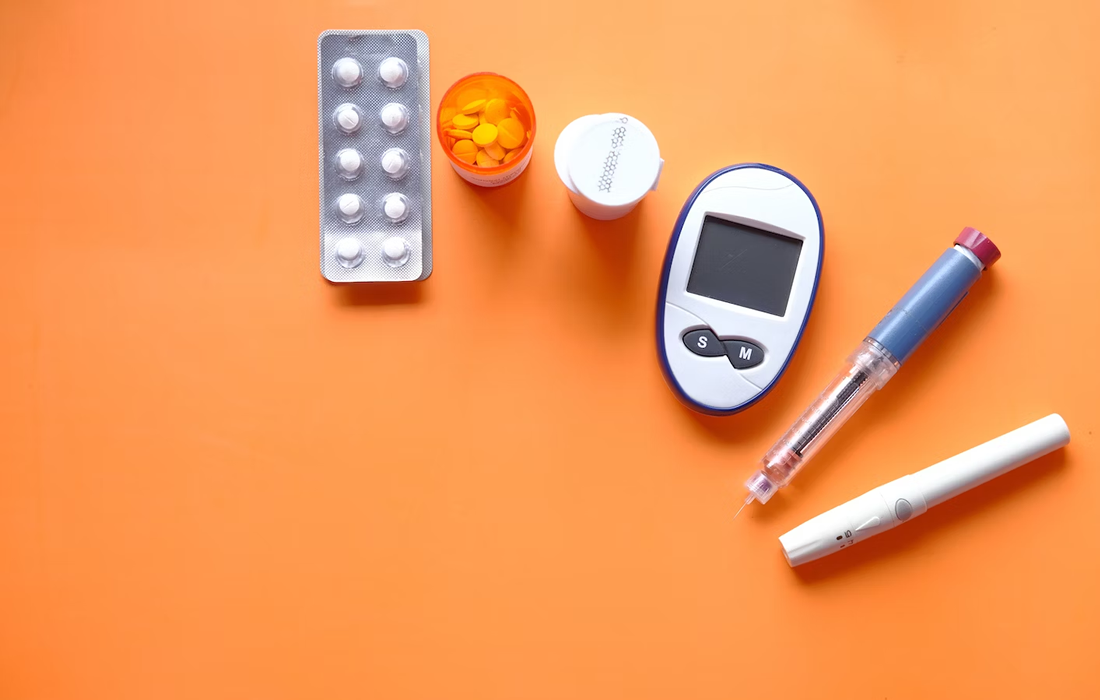Regenerative Medicine News and General Information
Weekly Insulin Injections for Diabetes
Insulin icodec, a once-weekly basal injection to treat type 1 diabetes, has the potential to be as effective in managing the condition as daily basal insulin treatments, according to research from the University of Surrey.
The results of the year-long phase 3 clinical trial could revolutionise the future of diabetes care and help millions of people better manage their condition.
During this pioneering study, scientists across 12 countries at 99 sites, led by Professor David Russell-Jones from Surrey, tested the efficacy and safety of a weekly basal injection of icodec (a long-lasting type of insulin) and compared it to a daily basal injection of insulin degludec in adults with type 1 diabetes. Short acting insulin to cover meals was used in both groups.
To learn more about the efficacy of icodec, scientists recruited 582 participants with type 1 diabetes. Participants were split into two groups; the first received once-weekly injections of icodec (700U/ml), and the second received daily injections of degludec (100 U/ml), both in combination with aspart, a short-acting insulin at mealtimes.
After 26 weeks, scientists identified HbA1C (a protein within red blood cells with glucose attached to it and the universal marker for overall diabetes control) levels in those who had taken icodec had decreased from a mean of 7.59 percent at baseline to an estimated mean of 7.15 percent, and for degludec, the mean had decreased from 7.63 percent to 7.10 percent. The estimated treatment difference between them being 0.05 percent, confirming the non-inferiority of icodec to degludec, but with a significantly reduced injection frequency for patients to manage.
Scientists did also identify higher rates of hypoglycaemic episodes (abnormally low levels of glucose in the blood) in the icodec group compared to degludec. However, despite the higher levels in the icodec group, scientists noted that incidences were low in both groups, with most episodes only requiring oral carbohydrate administration. For icodec, time below 3.0 mmol/L was at the threshold of the internationally recommended targets during weeks 22-26 and below recommended targets during weeks 48-52.
This study was published in the journal The Lancet.
Sources;
David Russell-Jones, Tetsuya Babazono, Roman Cailleteau, Susanne Engberg, Concetta Irace, Maiken Ina Siegismund Kjaersgaard, Chantal Mathieu, Julio Rosenstock, Vincent Woo, David C Klonoff. Once-weekly insulin icodec versus once-daily insulin degludec as part of a basal-bolus regimen in individuals with type 1 diabetes (ONWARDS 6): a phase 3a, randomised, open-label, treat-to-target trial. The Lancet, 2023; DOI: 10.1016/S0140-6736(23)02179-7
University of Surrey. (2023, October 30). Weekly insulin injections have the potential to be as effective in diabetes management as now-common daily injection regimes. ScienceDaily. Retrieved October 30, 2023 from www.sciencedaily.com/releases/2023/10/231030110700.htm
Image from: https://unsplash.com/photos/white-digital-device-beside-white-pen-ZJaK9jQXeDA

